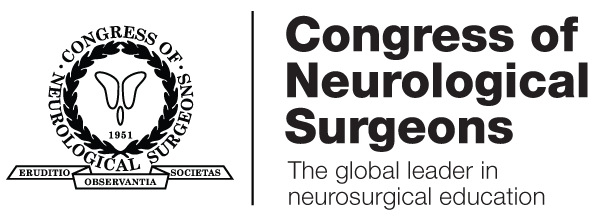Congress of Neurological Surgeons Systematic Review and Evidence-Based Guidelines on the Management of Patients With Nonfunctioning Pituitary Adenomas: Executive Summary
Aghi, Manish K. MD, PhD; Chen, Clark C. MD, PhD; Fleseriu, Maria MD; Newman, Steven A. MD; Lucas, Joshua William MD; Kuo, John S. MD, PhD; Barkhoudarian, Garni MD; Farrell, Christopher J. MD; Sheehan, Jason MD, PhD; Ziu, Mateo MD; Dunn, Ian F. MD
*Department of Neurosurgery, University of California, San Francisco, San Francisco, California;
‡Center for Theoretical and Applied Neuro-Oncology, Division of Neurosurgery, University of California, San Diego, San Diego, California;
§Departments of Medicine and Neurological Surgery, OHSU Northwest Pituitary Center, Oregon Health Science University, Portland, Oregon;
¶Department of Ophthalmology, University of Virginia, Charlottesville, Virginia;
?Department of Neurosurgery, University of Southern California, Los Angeles, California;
#Department of Neurological Surgery, University of Wisconsin, Madison, Wisconsin;
**Brain Tumor Center & Pituitary Disorders Program, John Wayne Cancer Institute at Saint John’s Health Center, Santa Monica, California;
‡‡Department of Neurological Surgery, Thomas Jefferson University, Philadelphia, Pennsylvania;
§§Department of Neurological Surgery, University of Virginia, Charlottesville, Virginia;
¶¶Department of Neurosurgery, Seton Brain & Spine Institute, Austin, Texas;
??Department of Neurosurgery, Brigham and Women’s Hospital, Boston, Massachusetts
Correspondence: Manish K. Aghi, MD, PhD, Department of Neurosurgery, University of California, San Francisco, CA 94143-0112. E-mail: aghim@neurosurg.ucsf.edu
Sponsored by: Congress of Neurological Surgeons (CNS) and the Section on Tumors.
Endorsed by: Joint Guidelines Committee of the American Association of Neurological Surgeons (AANS) and the Congress of Neurological Surgeons (CNS).
No part of this article has been published or submitted for publication elsewhere.
Received July 21, 2016
Accepted July 21, 2016
BACKGROUND: Nonfunctioning pituitary adenomas (NFPAs) are the most frequent pituitary tumors.
OBJECTIVE: To create evidence-based guidelines for the initial management of NFPAs.
METHODS: A multidisciplinary task force composed of physician volunteers and evidence-based medicine-trained methodologists conducted a systematic review of the literature relevant to the management of NFPAs. To ascertain the class of evidence for the posttreatment follow-ups, the task force used the Clinical Assessment evidence-based classification.
RESULTS: Seven topics of importance were chosen for detailed evaluation. The topics addressed include preoperative evaluation, primary treatment, treatment options for residual tumors after surgery, and postoperative patient management. For preoperative patient evaluation, the guideline task force focused on preoperative imaging, preoperative laboratory evaluation, and preoperative ophthalmologic evaluation. For primary treatment, this guideline addresses surgical resection, medical therapy, radiation therapy, the natural history of untreated tumors, surgical methodologies, such as endoscopy, microscopy, or craniotomy, and intraoperative adjuncts like neuronavigation, cerebrospinal fluid diversion, or intraoperative imaging. For residual tumor treatment, the guideline task force evaluated radiation vs observation. Additional topics addressed in this guideline regarding postoperative patient management include the frequency of postoperative imaging, postoperative endocrine evaluation, and postoperative ophthalmologic evaluation.
CONCLUSION: Although there is clearly a need for more randomized trials generating higher levels of evidence to help guide physicians managing NFPAs, the existing evidence provided valuable data upon which the guidelines described in the 7 articles generated from this effort are based. The full guidelines document can be located at https://www.cns.org/guidelines/guidelines-management-patients-non-functioning-pituitary-adenomas.
ABBREVIATION: NFPA, nonfunctioning pituitary adenoma

